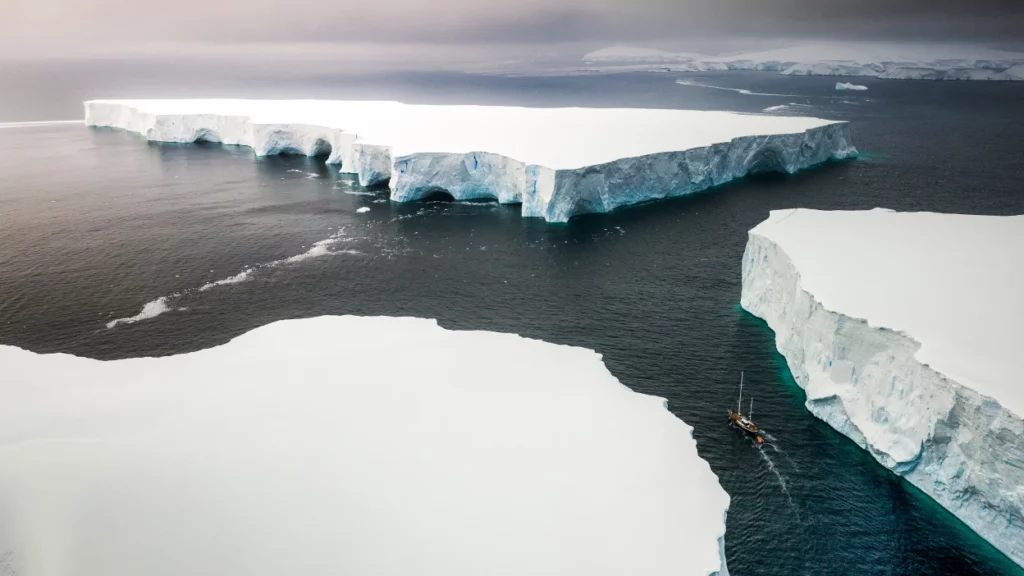A new study says the settled science indicates that warming is happening even faster than thermometers can read and “time’s running out”. As it seems always to be doing, as if training for a marathon that never actually starts. This time it’s “ancient sea sponges” telling us what the thermometer refuses to say but the models demand. The Euronews piece starts boldly “A handful of centuries-old sponges from deep in the Caribbean Sea could hold clues about the impact of human-caused climate change.” By “handful” they mean six, and by “clues” they mean the sponges supposedly recorded modern warming better than all the thermometers, satellites and weather balloons put together. And of course it’s worse than expected.
No really.
“They’re causing some scientists to believe that warming began sooner and has progressed more rapidly than previously thought. The researchers calculate that the world has already gone past the internationally approved target of limiting global warming to 1.5°C since pre-industrial times, hitting 1.7°C as of 2020.”
Oh well. Wasn’t that meant to be a red line beyond which doom loomed? And yet no one noticed. So where’s the doom? For that matter where’s the data sample? The researchers:
“analysed six of the long-lived sponges – simple animals that filter water – for growth records that document changes in water temperature, acidity and carbon dioxide levels in the air, according to a study in Monday’s journal Nature Climate Change.”
Oh dear. A proxy based on six specimens, where one output gives insight into three inputs? Tricky.
Especially, we want to add, because when they forget their climate change lines even journalists exult about how unsettled the science is and how marvellous, diverse and unknown nature is. Including sponges. Thus, from the Washington Post in an unguarded moment:
“See the dozens of new species this deep-sea robot just discovered/ Alien-looking lobsters, sponges, urchins, sea stars and sea lilies are among the creatures deep-sea explorers found off the coast of Chile”.
Of course everything is a call to praise the almighty state:
“For the researchers, it shows how ocean protections put in place by the Chilean government are working to bolster biodiversity, an encouraging sign for other countries looking to safeguard their marine waters.”
In this case plausibly. But with so much that is unknown, telling us the history and future of the planet from a handful of known creatures and a bunch of speculation smacks of hubris.
Not to be cranky, but even you-know-who isn’t buying this latest six-sponges-of-death item:
“University of Pennsylvania climate scientist Michael Mann, who wasn’t part of the study, has long disagreed with the IPCC’s baseline and thinks warming started earlier. But he is still skeptical of the study’s findings. ‘In my view it begs credulity to claim that the instrumental record is wrong based on paleo-sponges from one region of the world. It honestly doesn’t make any sense to me,’ Mann says.”
Nor us. And indeed the story admits that there’s no story:
“Other scientists were skeptical of the study’s claim that the world has warmed that much more than thought. But if the sponge calculations are right, there are big repercussions, the study authors said.”
Sure. And if granny had wheels she’d be a trolley-bus. But it’s OK to be wildly speculative about reasoning when the conclusion was carved in stone before you started:
“‘The big picture is that the global warming clock for emissions reductions to minimise the risk of dangerous climate changes is being brought forward by at least a decade,’ says study lead author Malcolm McCulloch, a marine geochemist at the University of Western Australia. ‘Basically, time’s running out.’”
Forward from what? How big is the risk? How much can we “minimize” it? How much time is left? Uh well um see send more grants. And more headlines.
The Euronews piece also insists that:
“In the past several years, scientists have noted more extreme and harmful weather – floods, storms, droughts and heat waves – than they had expected for the current level of warming.”
Which scientists? Where? How much more? What had they expected?
Actually NOAA would be impressed, because part of the trick to creating runaway warming today when there isn’t any is to air-condition the past. And indeed:
“The study finds that the mid-1800s were about half a degree Celsius cooler than previously thought, with warming from heat-trapping gases kicking in about 80 years earlier than the measurements the IPCC uses. IPCC figures show warming kicking in just after 1900.”
The idea of using proxy records is that, during the period when you have both proxies and thermometer data, if the two match, then maybe the proxy can be used to look at the past. But if the proxies don’t match the thermometers during the overlap period, um doesn’t your whole house of cards tumble down?
Don’t they teach logic in schools any more?
Apparently not, as it’s become the new unexamined dogma. Euronews.green intones that “Humans are responsible for virtually all global heating in the last 200 years, scientists say.” Do they now? And on what basis, since the mechanism by which we caused this fabled “heating” back in 1824 remains a total mystery.



So
Piltdown Mann says it’s crazy to rely on proxies from one region, and yet his hockey stick graph was based largely on a single tree?
This guy makes Trudeau look intelligent and thoughtful.
Looking at six sponges gives insight into climate change?Almost as bad as if they had read tea leaves or someone's hand palm lines.